War stories continue to capture the attention of today’s generation. Stories of how veterans survived each encounter they had with the enemy, how they managed to live with the limited supplies that they had, how they met and made friends not only with their comrades but also with the locals of the place where they were deployed, and how they learned more about appreciating life through their near-death experiences continue to become fascinating windows to the past and current events.
[pullquote]”Humor is a powerful and indispensable tool in keeping one’s sanity intact in the face of death and destruction.”[/pullquote]Your grandparents or any relative who had been deployed to war may have told their war story differently. You may notice that every time your grandfather tells his story, it would be filled with details of the places he has been in, the people he has encountered, the sensations of terror and waiting for death which would scare the living hell out of anyone. Sometimes, your veteran relative would focus on his achievements in the war, such as how he managed to lead his troop into enemy camp and capture it, how he killed men, and how he was considered a hero.
It may be an attempt to recall what had happened, it may have been altered to favor the storyteller’s image as a war hero, but the common theme surrounding the telling of war stories is the use of humor — its use of jokes, of anecdotes, of words which are meant to make people feel the impact of the events in the story.
Why is humor used by war veterans to tell their war stories? Being that what they are telling is their experiences in gruesome battle, which may have been traumatizing to thousands and even millions of people at the time, what would be the reason why humor would be needed to retell these tales?
War is painful. Not only does it injure people physically, imprinting lifelong marks on the skin of soldiers and civilians, but it is also emotionally and mentally stressful to the mind and spirit. Many have gone mad just by serving in the war for a few months. Civilians who have witnessed the horrors of war experienced being in the middle of conflict and being unable to do anything about it, except just to hope that they are not killed with the guns and the bombs that are going off everywhere. If explosives are not going off, people think of how to survive with limited supplies. Of course, soldiers are usually provided with food and shelter by their government in order to survive, but in the end they would still need to use their own creativity and wits just to make it through every day without starving, going mad, or becoming thoroughly exhausted.
Being in a war is one of the most painful experiences that a person can go through in life. It changes you and makes you more aware of the horrors that lie in the world. If people continue to wallow in the pain and suffering that comes with being in a war, it would be difficult to find the courage to get up from bed every day without your conscience being bothered.
Humor is a survival tool in this instance. It helps war veterans deal with the horrors and the stresses of war, and helps make it easy to retell their war experiences. Humor acts as a pain reliever which helps veterans and civilians (who can also be considered as war veterans in their own right) keep positivity in their lives, thus encouraging them to continue living their life to the fullest.
Humor is a powerful and indispensable tool in keeping one’s sanity intact in the face of death and destruction.
Just because people have gone to war and experienced it firsthand does not mean that simply being happy is something that they should be guilty about. There is no need for anyone to wallow in the miseries of war and destruction. Even in the darkest moments, people can still laugh, see the bright side of life, continue to hope, and appreciate what life has to offer.
Civilianized: A Young Veteran’s Memoir
In this dark humored War Memoir, Iraq veteran Michael Anthony discusses his return from war and how he defeated his PTSD. Civilianized is a must read for any veteran, or anyone who knows a veteran, who has returned from war and suffered through Post-Traumatic Stress Disorder (PTSD).
“I wont soon forget this book.” -Mary Roach
“A must read.” -Colby Buzzell
“[S]mart and mordantly funny.” –Milwaukee Journal Sentinel
“Anthony delivers a dose of reality that can awaken the mind…” Bookreporter
Order your copy of Civilianized: A Young Veteran’s Memoir .
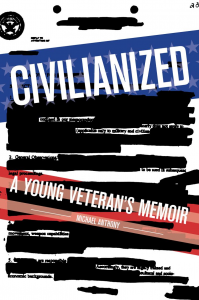
 The show
The show 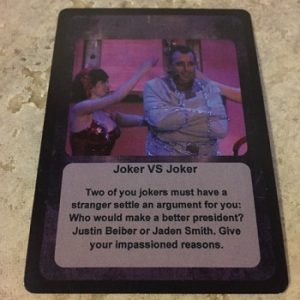
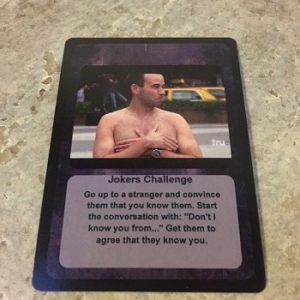
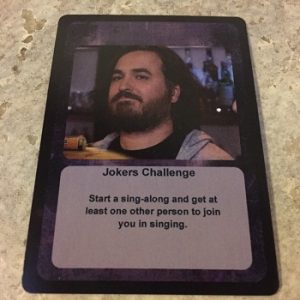
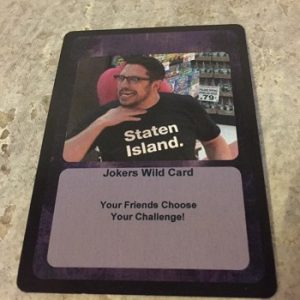 After each participant either completes or fails their challenge, all losers will then draw a punishment card (other option is that you continue with the challenge cards until there is only one loser).
After each participant either completes or fails their challenge, all losers will then draw a punishment card (other option is that you continue with the challenge cards until there is only one loser).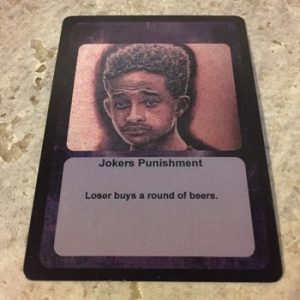 The punishment cards also have a different back than the challenge cards (so they can easily be told apart).
The punishment cards also have a different back than the challenge cards (so they can easily be told apart).
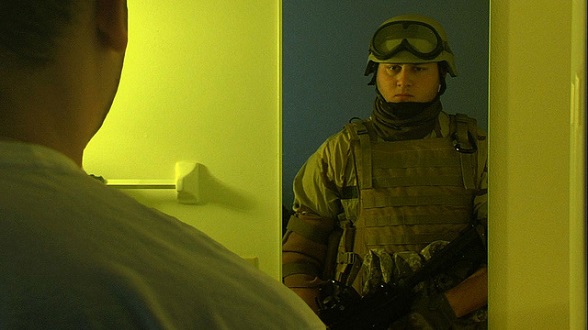

 A good physical exercise that’s recommended for veterans suffering with PTSD is yoga. Yoga can be very strenuous and physically demanding, and is often done in heated rooms over 100 degrees, and at the end of every yoga session there is a fifteen minute period of meditation. With yoga a person will be able to combine two methodologies from the military’s mental toughness program. They will have the purely physical component of the exercise and the mental component of the meditation. It’s a win win.
A good physical exercise that’s recommended for veterans suffering with PTSD is yoga. Yoga can be very strenuous and physically demanding, and is often done in heated rooms over 100 degrees, and at the end of every yoga session there is a fifteen minute period of meditation. With yoga a person will be able to combine two methodologies from the military’s mental toughness program. They will have the purely physical component of the exercise and the mental component of the meditation. It’s a win win.